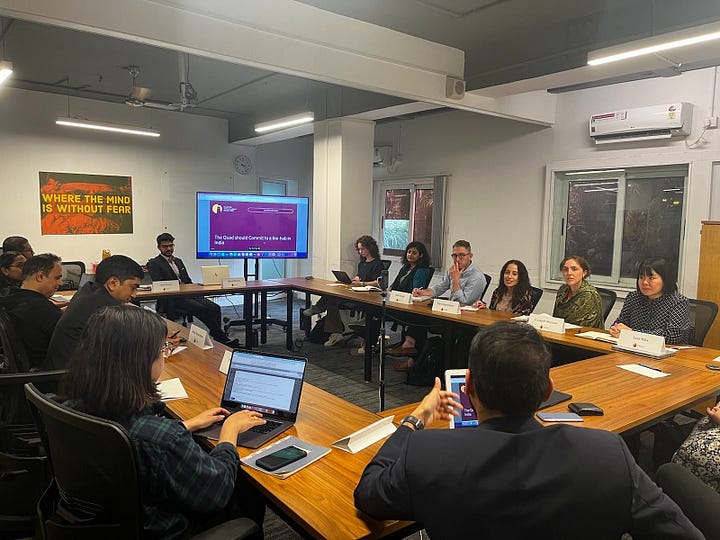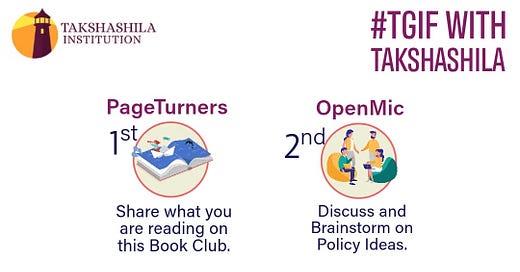Lessons From Hal Wyler’s Speech for the Biden-Xi Meeting
In the final episode of season 1 of The Diplomat, a thoroughly sexed-up TV show on diplomacy (think Mission: Impossible on international relations but without the Tom Cruise stunts), Hal Wyler, the ambitious diplomat husband of the US Ambassador Kate Wyler, is called to give a speech on the importance of communication in international relations at Chatham House in London.
Wyler, who is depicted as a key negotiator during the crucial Bosnia talks, refers to a fictitious person named Suljic in his speech, and how the latter started a bombing campaign that very nearly killed his wife Wyler describes how, despite this, he had to sit for more hours in locked rooms with Suljic than sit next to his wife in the hospital. Wyler is so angry that he refuses to shake hands with Suljic the first time they meet. “Rookie move,” Wyler says. “It probably set back peace by a year.”
Astute readers of this newsletter would have not missed how the show’s writers referenced real-life US diplomat Richard Holbrooke and how he was reluctant to shake hands with Bosnian Serb military officer and convicted war criminal Ratko Mladić who was notorious for his war atrocities.
“Communication isn’t the key,” Wyler says. “Diplomacy doesn’t open doors with the twist of the wrist. Diplomacy never works.” At this point, he uses an expletive that we have, ahem, diplomatically, redacted (this is a public policy newsletter, after all, not a Netflix review piece). “Diplomacy,” Wyler continues, “is 40 days and nights in a Vienna hotel room listening to the same empty talking points. Getting trashed at the minibar. It’s getting to ‘no’ over, and over, and over. The answer will be ‘no’, so don’t stop when you hear it. Diplomacy never works… until it does.”
We were reminded of this dramatic speech after reading Manoj Kewalramani and Amit Kumar’s brilliant op-ed in Moneycontrol on how the real challenge is to continue US-China engagements despite tensions near an all-time high.
They write:
“Given the deep and structural differences between the strategic objectives and positioning of the two countries along with the imperatives of domestic politics, it is important to temper one’s expectations.” This is true because it is not easy — perhaps even impossible at this point — for the two high-tech geopolitical combatants to arrive at a common ground (and US President Joe Biden did not make it any easier by reiterating his ‘dictator’ epithet for Chinese President Xi Jinping).”
To quote Manoj and Amit:
“Beijing does not buy the distinction between de-risking and decoupling. In addition, the Chinese argument is that Taiwan has become a “red line” issue between the two sides, and that by not agreeing to the one-China principle, i.e., the legitimacy of the PRC’s rule over Taiwan, the US is violating past agreements. In other words, Beijing wants the US to respect its core interests and accommodate it as a peer power.
These, along with both China and US’ differing visions of the world order and domestic political churn in the US heading into the 2024 presidential elections, imply that there exist fundamental and structural disagreements and stressors between the two sides. Therefore, it is rather fanciful for anyone to expect any major breakthroughs or a new detente or a grand bargain to come out of the Xi-Biden meeting.”
What, then, is the way forward?
“What one can expect is a commitment to continued engagement, with a focus on narrow, specific, and prickly issues. In this regard, if the two sides can agree to resume military-to-military dialogue, which has remained suspended for over a year, then that would be a major achievement.”
Read their column here.
You can also listen to their podcast episode on the Biden-Xi summit here.
Amit later appeared on a YouTube show on this topic by senior journalist Neena Gopal of The New Indian Express.
Well, The Chips Are Really Down, Aren’t They?
They were right when they said that the next global conflict will be decided by battles over hardware and software, not nuclear weapons. Or at the very least, the conflict over software that threatens a worldwide catastrophe. We will get to that when we do, but hey, the current sequence of events that dominates global tensions is closely related to just that — hardware and software.
Takshashila Deputy Director Pranay Kotasthane, one of India’s pre-eminent experts on high-tech geopolitics (he also heads the eponymous programme at Takshashila), has co-authored a book that decodes what’s happening around the world, given the tensions between the US and China.
The book’s description says,
“Today, the hardware that runs all software — semiconductors or chips — has become a subject of WhatsApp groups and international politics. The chip shortage during COVID-19 made governments take notice of this complex supply chain. The US began denying advanced semiconductors to Chinese companies. Worsening China-Taiwan relations further intensified the debate. By 2022, China, the US, India, the EU, and Japan had released plans worth billions of dollars for setting up new semiconductor facilities.”
This is apt. Pranay and Abhiram Manchi’s book, a comprehensive overview of this “meta-critical” technology is titled ‘When The Chips Are Down’, and looks at how semiconductors important from a geopolitical perspective; how the US and Taiwan become powerhouses in this domain, while Russia and India fell behind; is China’s semiconductor sector a threat to the world; and what are the future trends to watch out for.
You can buy this fascinatingly simple-to-understand book here.
How Big Are The Dragon’s Footprints? Very Big, Our Investigation Says
First, let’s get the promo out of the way. If you have not subscribed to Dr Nithiyanandam’s Takshashila Geospatial Bulletin, please do so right now. It contains possibly the most comprehensive of all geospatial analyses about India’s strategic concerns.
OK, now to the latest on Nithiya’s newsletter. It is a stunning investigation into how the Chinese have managed to make incursions into Indian territory using geospatial analytics.
Nithiya writes:
“The Doklam tri-junction, a vital region in the Himalayas, has become a focal point of geopolitical tension between India and China, marked by historical complexities and territorial disputes. The issue's roots trace back to geopolitical shifts in the 17th and 18th centuries, shaping the Himalayan landscape and British involvement. The Anglo-Chinese Convention of 1890, a pivotal treaty delineating boundaries, omitted Bhutan as a signatory. The current Doklam border dispute revolves around conflicting interpretations of the treaty and India’s legal rights. China’s low-level patrolling/ civilian herding dates back to 1966, escalating in 2017 when a standoff ensued over a road construction project. Despite de-escalation efforts post-2017, China continued its construction activity.”
Nithiya’s latest explains events in the Doklam plateau up to July 2020, encompassing its history and developments. In this article, Nithiya examines the recent military advancements undertaken by China’s People’s Liberation Army (PLA) in Doklam, particularly over the past two years, utilising satellite imagery and Geospatial Intelligence as valuable resources.
AI and the Growth of a Liberal Democracy
As we write this piece, OpenAI founder and former CEO Sam Altman has been hired by Microsoft after a flurry of incidents over the weekend that threatened to upend the world of artificial intelligence (more on that in a later episode of Dispatch, perhaps).
At Takshashila, however, we ask a broader question: can AI help the cause of liberal democracy? Many scientists and policymakers around the world are standing up and highlighting the potential harm that AI can do but Sridhar Krishna and Rijesh Panicker bring a different perspective and suggest AI can actually support the growth of liberal democracy.
If you want to understand more, head to the All Things Policy episode here.
What are the takeaways of the Xi-Biden Summit?
We have elaborated on the importance of continuing the US-China talks in the post at the beginning of this newsletter. Takshashila Director and Co-founder Nitin Pai goes a step further in his latest column for Mint.
He writes:
“Tech is where China hurts the most. Cutting off access to the cutting edge semiconductors and production technology is a severe blow to the Chinese technology eco-system, potentially setting it back by as much as a decade in relative terms. Washington can impose export controls, sanctions and manpower restrictions, and contain the growth of the Chinese technology industry. Beyond restricting some rare earth exports, Beijing has little to retaliate with. The Chinese state can throw money and people at the problem, but that means playing a game of catch up with a competitor that is already a couple of generations ahead. In an industry where time-to-market matters, weakness in the tech war leaves China with compounding disadvantages.”
What did Xi, therefore, do that impressed the tech titans of San Francisco?
“After the meeting with Biden, Xi charmed a gathering of top business leaders (who were perhaps too eager to be charmed, and not only for the thousands of dollars they’d paid to attend) with a narrative of US-China cooperation and co-existence but tellingly, said little about economic policy. Some US politicians were infuriated that CEOs were paying so much money to rub shoulders with the pugnacious Chinese leader, and have demanded a list of attendees from the organisers. I’m sure that the Chinese side too has requested for the list, for reasons of its own. The irony is that if the technology industry was a bridge between the United States and China, the single most important person responsible for dismantling it was the person receiving standing ovations in San Francisco. It will take more than a meeting and a dinner for Xi to reverse course.”
Read Nitin’s column here.
Wait, There’s More
OpenTakshashila, our think tank’s attempt to make public policy sexy (and we seem to have touched a chord) is going great guns with the TGIF initiative. Every Friday, Open Takshashila will have one event to get our community going.
The first Friday features PageTurners, a policy book club. Next week we will have OpenMic, a place where we discuss and brainstorm on policy ideas. Next, we have an alumni-only event titled Organise For Change (OFC) where we will feature leaders who have made a difference. In the last week, we have OffBeat, where we will explore hobbies, fun events, and suchlike that revolve around policy. Login to OpenTakshashila here.
Takshashila Institution recently hosted the Quad Fellows from the Leaders Lead on Demand Program, on Thursday, November 16, 2023. The visiting delegation included Mr. Blake Berger, Ms. Daria Impiombato, Ms. Elizabeth Morison, Ms. Sucharita Bhattacharjee and Dr. Saya Kiba. The delegation had an engaging conversation with the Takshashila team on several Quad-related issues.


Do you want to work with Takshashila? There’s a job opening. Details here.
Applications for the Jan’24 Cohort of GCPP are Now Open



That’s all from us this week. See you next.






